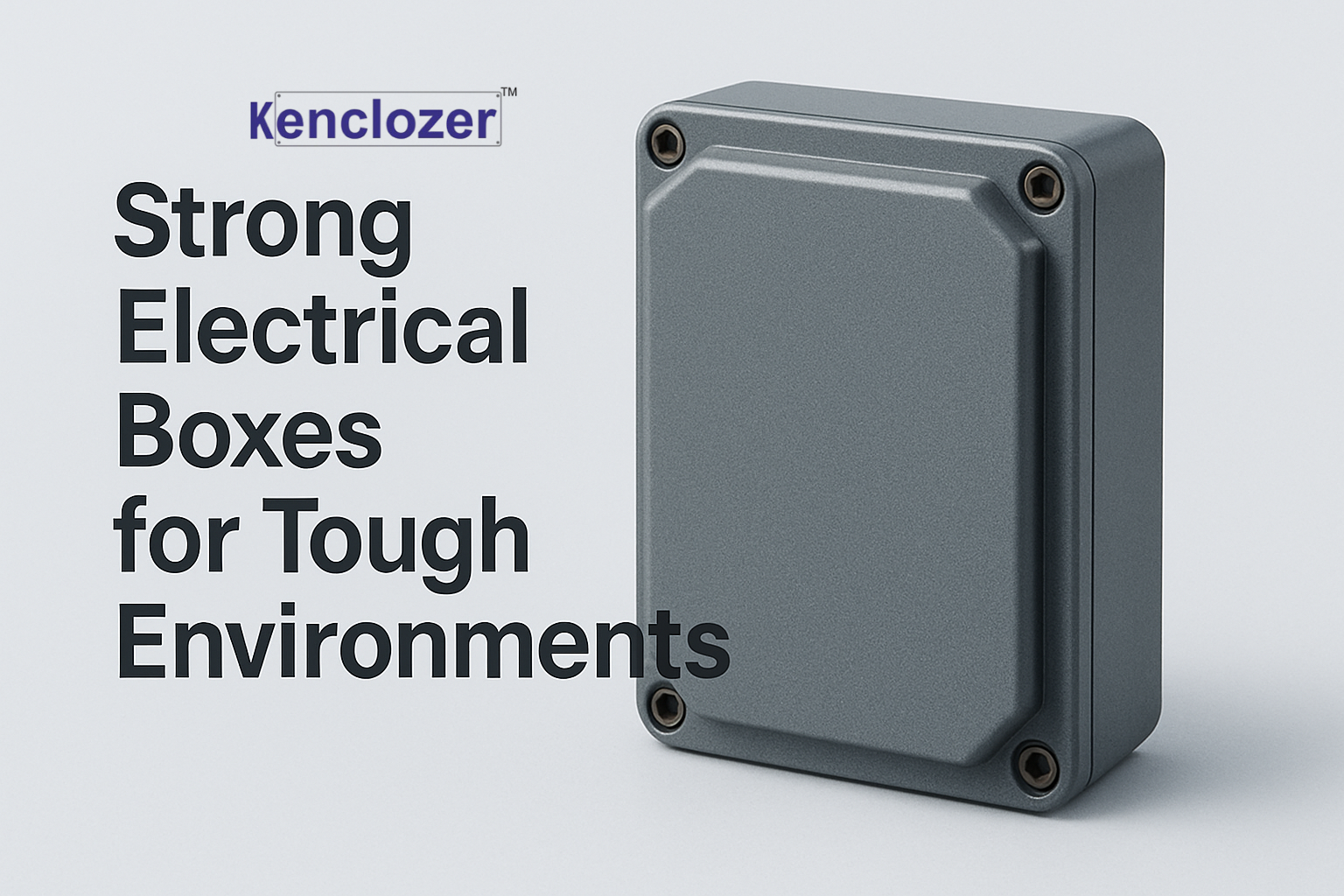Strong Electrical Boxes for Tough Environments

More than the simple enclosures are needed by electrical systems installed in problematic locations like outdoors, factory, construction sites, or even marine areas. They require powerfully built, sturdy and weather-proof electrical boxes that would not be destroyed by the sun, rain, dust, and even contact.
This article gathers together what we mean when we say that an electrical box is strong, which materials to seek, what might be considered a tough environment in which electrical enclosures are used, and how one would select the appropriate enclosure according to the conditions.
What Makes an Electrical Box Strong?
A strong electrical box must be able to:
- Resist environmental condition (UV rays, rain, wind, snow)
- Stave off mechanical impacts, vibration, as well as wear and tear
- Exclude dust, water and corrosive elements
- Respond to extremes in temperature
- Electrical insulate or ground material
Key Features to Look For
- Material Strength
Electrical boxes used on strong electrical are normally composed by:- Polycarbonate – impact resistant, UV stable, non corrosive, is suitable in the outdoors.
- Fiberglass Reinforced Polyester (FRP) – high durability, chemical resistance, used in industrial or corrosive settings.
- Stainless Steel (304 or 316) – powerful, reliable, ideal for high-security or food-grade installations.
- Aluminum – light and strong metal, common in commercial and automotive applications.
- High Ingress Protection (IP) Ratings
Look for IP65, IP66, or IP67 rated boxes:- IP65 – Dust-tight and resistant to water jets.
- IP66 – Dust-tight and resistant to heavy sea spray or power jets.
- IP67 – Dust-tight and protected from immersion in water.
- IK Rating for Impact Resistance
The IK rating measures resistance to mechanical impact.- IK08–IK10 is preferred for high-risk areas (vandalism-prone or heavy machinery zones).
- Thermal and UV Resistance
Boxes exposed to sun or extreme temperatures must resist:- No fading, or yellowing, or brittleness by UV inactivations.
- Warper or spender in hot cold.
- Chemical and Corrosion Resistance
In chemical plants, coastal regions, or agriculture — boxes must resist:- Salt spray
- Oil and solvent substances
- Vapors acidic or alkaline
Types of Tough Environments and Box Recommendations
| Environment | Common Threats | Recommended Material |
|---|---|---|
| Outdoor Installations | UV rays, rain, temperature changes | Polycarbonate / FRP |
| Industrial Factories | Dust, vibration, chemicals, impact | FRP / Stainless Steel |
| Coastal & Marine Areas | Salt spray, corrosion, moisture | 316 Stainless Steel / FRP |
| Underground / Wet Locations | Water ingress, humidity, rodents | Polycarbonate (IP67) / Metal |
| Construction Zones | Rough use, dust, heavy tools | IK10-rated Polycarbonate / Steel |
| Agricultural Fields | Humidity, pesticides, soil contact | Polycarbonate / FRP |
| Food & Pharma Sectors | Frequent washdowns, hygiene rules | Stainless Steel (sanitary grade) |
Advantages of Using Strong Electrical Boxes
- Protect expensive electronics and systems from breakdown
- Prevent electrical accidents due to exposure
- Reduce maintenance costs in harsh zones
- Meet compliance with safety or industry standards (NEMA, UL, IP, IK)
- Enable longer lifecycle of installations
FAQs
Conclusion
Not every electrical box is made to cover harsh conditions. Having to work in a marine dock, dusty factory, cold environment, and even hot sun, your enclosures should be rugged enough to resist the extremes.
When selecting strong electrical box, it is always necessary to select the correct one in w.r.t. material, IP/IK rating, and environmental protection, so as to achieve better safeness, reliability and life of your electrical installation.
Fail to compromise; buy enclosures that are tough enough to meet your environmental needs. It can be not only protection, it can be performance.